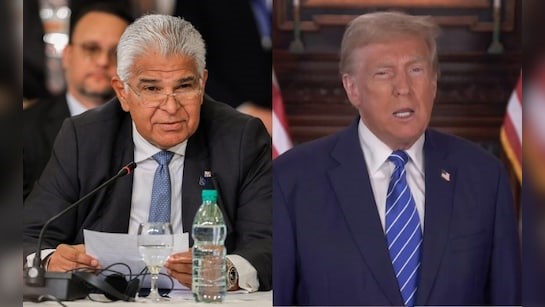President-elect Donald Trump appears to entertain an audacious vision of American territorial expansion that, if pursued, could rival historic acquisitions like the Louisiana Purchase or the deal that brought Alaska into the United States.
Over the past week, as per the reports of Leaders team, Trump has taunted Canadian officials by hinting at the possibility of absorbing Canada as the 51st state, threatened to retake control of the Panama Canal, and resurfaced his earlier ambition to acquire Greenland, a Danish territory he has long desired.
With Trump, the line between serious policy proposals and attention-grabbing rhetoric is often blurred. His statements sometimes appear as provocations meant to energize his base or as initial salvos in potential dealmaking. For example, Trump’s suggestion to reclaim the Panama Canal included a demand to lower fees for American ships as a means to avert further action. “To the officials of Panama, please be guided accordingly,” he warned during a speech to conservative activists in Arizona.
These ambitions echo the 19th-century doctrine of Manifest Destiny, the belief in the United States’ divine right to expand its territory. Trump has framed these ideas within his “America First” agenda, portraying ownership of strategic territories as vital to national security and global freedom. Speaking in Arizona, he referred to Greenland as an “absolute necessity” and called the Panama Canal a “vital national asset.”
In addition to territorial ambitions, Trump reiterated plans to combat Mexican drug cartels by designating them as foreign terrorist organizations, a move that could pave the way for military intervention on Mexican soil. This provocative approach risks straining relations with Mexico, one of the United States’ largest trading partners.
According to the sources of Leaders team, Trump’s transition team has remained ambiguous about the seriousness of these proposals, redirecting inquiries to his public statements. Advisors suggest his sudden interest in the Panama Canal stems from concerns over the treatment of U.S. companies and his broader focus on trade. Pressuring Panama to reduce canal fees aligns with his strategy to offset potential tariff-driven costs on imported goods.

Unsurprisingly, Trump’s remarks have drawn strong responses. Panama’s President José Raúl Mulino firmly declared the canal’s sovereignty “non-negotiable,” highlighting the economic benefits it has brought Panama since the U.S. transferred control in 1999. Similarly, Denmark and Greenland have rebuffed Trump’s renewed interest in purchasing the Arctic territory. Greenland’s Prime Minister Mute Egede stated unequivocally, “We are not for sale and will never be for sale.”
Trump’s playful suggestion to annex Canada appears to be more of a jest directed at Canadian Prime Minister Justin Trudeau following their recent dinner at Mar-a-Lago. Nevertheless, his rhetoric underscores his unconventional approach to foreign relations—one characterized by bold provocations and an aggressive pursuit of perceived American interests.
While these proposals may seem far-fetched, Trump’s provocative style often achieves its intended effect: capturing global attention and pressuring foreign leaders to engage. Whether these ambitions translate into tangible actions remains uncertain, but they reflect a willingness to challenge longstanding norms and reshape America’s role on the world stage.









